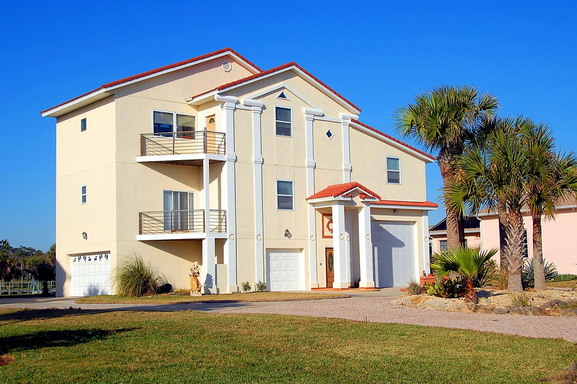For Spain, which has been grappling for years with a severe housing affordability crisis — with rents seemingly doubling in little more than a decade — is finally taking the first steps towards tackling the crisis, news that immediately sent a wave of noise and activity from stakeholders all across the country.
Rising Rents & Its Impact
So, apparently, rental prices have gone through the roof in Spain. The average rental cost nationwide doubled in the past decade and surged 11 per cent in just the past year, according to the property portal Idealist.
In Madrid, the blow of these higher costs have been felt by people like Blanca Castro. And Ms Castro, a central Madrid tenant, says her rental contract is not being renewed and she is being pushed out. She goes on to say that if she searched for a comparable property in the area, she would pay over double, at least, her candidacy rent and that it was not feasible. Other tenants in her apartment building say they experienced the same issues, accusing the management of failing to perform basic maintenance once they were told their leases would not be renewed.
Here, a typical tenancy agreement is for five years with a stable rental price. The property prices of this central Madrid have risen dramatically in recent years. Ms Castro said now days in the rental market some owners are re-releasing properties at higher rates or changing properties for the short-term tourist rental market.
Response from the Government and Society
A so-called “social emergency” was defined by the national government, which believes the housing shortage is partially responsible of present issues. The Housing Ministry said last year that between 600,000 and one million homes were needed over the next four years to satisfy “the accumulated demand.”
Much of this increased housing demand stems from the arrival of immigrants entering the labour force in Spain, working on a healthy Spanish economy. For its part, the ministry has also referred to the “low weight” of social housing in Spain, only 3.4% of the total park of all housing, something that is ”low compared to any of the European countries.
Such activity peaked in Spain back in 2007, with plans for over 600,000 new houses. However, supply constraints due to higher construction costs, limited land and labour shortages have limited building in recent years. Newly reported completions in 2024 bottomed just below 100,000.
Important Steps
Some of the steps the government is taking to encourage building include freeing up land close to urban centres to reserve more land for future affordable housing and working to keep public housing in the nonprofit sector. Pedro Sánchez, the Prime Minister, also suggested that he would be willing to step in to regulate rental prices. While opening new low-rent flats in Seville, he stated that public opinion demanded housing should be “regulated in a humane way” and further sought to rein in “abusive practices” in leasing.
Second of all short-term tourist accommodation has also been pointed out by the central government as well as many local administrations as adding fuel to the fire of rental price storm. This year to date, it have seen some city councils announce they will limit tourist flat permits. (Barcelona alone has conveyed plans to YANK the licenses from its roughly 10,000 registered short-term apartments by 2028, as reported here, for example.)
The national government meanwhile has approved a housing law that includes rent caps in “tender” areas where rents are growing quickly. This law has been already applied on the north French Basque country, Navarre and Catalonia. Rent prices in these so-called ‘tension’ zones of Catalonia have decreased since the limit was enforced, according to government figures.
Public sentiment has been inflamed by demonstrations over housing affordability. Demonstrators at the national capital-Madrid and in other Spanish cities on Saturday 5 April asked for policies to ensure affordable housing, of which thousands are said to have participated.
Proposed Measures and Arguments that Still Persist
Spain also proposed a tax on properties purchased by non-residents from outside the EU so that those homes that are rarely used are maintained as occupied. This could impact Britons buying property if approved.
This from abroad sounds more like the conservative opposition calling — some speak of “interventionism”. But on the other hand, few are asking for stronger action from the country’s rulers to deal with housing affordability problems.
The Spanish case enfolds the nexus between economic drivers, accessibility of housing, and regulatory stance. And the negotiations and work being done to that end to navigate these challenges to affordable housing for the citizenry.






